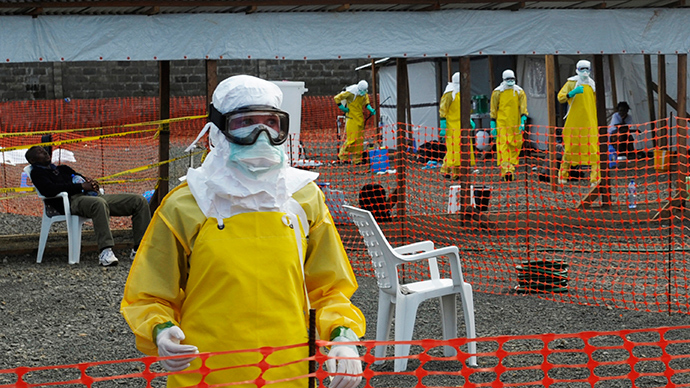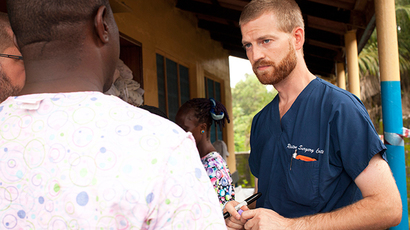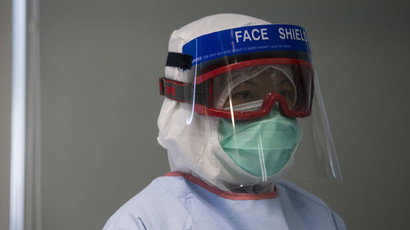Sierra Leone to enter ‘lockdown’ as Ebola death toll tops 2,000

Sierra Leone announced it will implement a four-day “lockdown” across the country in an attempt to contain the spread of Ebola. The Friday move came as the World Health Organization stated that the virus has so far claimed over 2,000 lives in Africa.
Beginning September 18, the nation will prohibit residents from leaving their homes for four days, with the hopes that health officials will be able to detect early-stage cases, Ibrahim Ben Kargbo, a presidential advisor in Sierra Leone, told Reuters.
“The aggressive approach is necessary to deal with the spread of Ebola once and for all,” he said.
Unfortunately, the news was accompanied by worsening statistics from the World Health Organization (WHO), which announced on Friday that out of the roughly 4,000 people that have been confirmed to have the virus, 2,105 people have died in Guinea, Liberia, Sierra Leone, and Nigeria.
It marked a drastic rise in the death toll – a spike of about 500 people since last week – and continued adding to what is already the most deadly Ebola epidemic since the virus was first detected in 1976.
READ MORE: American doctor infected with Ebola lands in US for treatment
As officials scramble to address the problem, a separate Reuters report revealed that drug companies are also trying to fast-track their efforts to bring new kinds of medicine to market. Multiple drugs have been labeled as potentially helpful by the WHO, but ZMapp, in particular, has attracted attention worldwide.
Developed by Mapp Biopharmaceutical, ZMapp first made headlines when it was administered to two American aid workers who had contracted Ebola, both of whom were flown out of Africa and recovered from the virus soon after. The drug has been successfully given to seven individuals total, but Mapp president Dr. Larry Zeitlin said that despite the US granting over $42 million to speed up its testing, it still needs to undergo clinical trials – starting in 2015.
“The US support will enable us to figure out what the appropriate dose is and scale up manufacturing. With a drug you have not only to make it, but make it consistently to the same quality. The award given us is for 18 months. We will probably be in human trials beginning in 2015,” he told Reuters.
“We don’t have data indicating whether ZMapp is safe in humans, we don’t have data that it works in humans. That is the whole point of performing clinical trials,” he added.
READ MORE: Ebola-infected patient in Liberia escapes quarantine, enters crowded market
While ZMapp is aimed at treating the disease, there are also tests of a vaccine that would attempt to prevent infection outright. The new vaccine was developed with technologies from both American manufacturer Johnson & Johnson and the Danish biotech company Bavarian Nordic.
The combination vaccine from the two companies aims to protect against the Zaire strain, responsible for the current outbreak. Initially, it was intended to develop a vaccine that targeted two of the disease's strains, but later a decision to simplify the task to speed up the process was made.
Scientists will fast-track Johnson & Johnson testing of the Ebola vaccine and begin human clinical trials in early 2015, Reuters reported.
Earlier this week, Russian Health Minister Veronika Skvortsova said an experimental Russian Ebola vaccine showed positive initial results in preclinical trials and is currently undergoing further tests.
Other drugs are also being tested in the hopes that a more comprehensive view of their benefits and consequences can be determined by the end of the year.
On Wednesday, WHO director general Margaret Chan said the virus has been “underestimated” by international organizations and is only getting worse.
“All international organizations underestimated the disease,” she said. “The outbreak will get worse before it gets better. And it requires a well-coordinated, big surge and huge scale-up of outbreak response urgently.”














